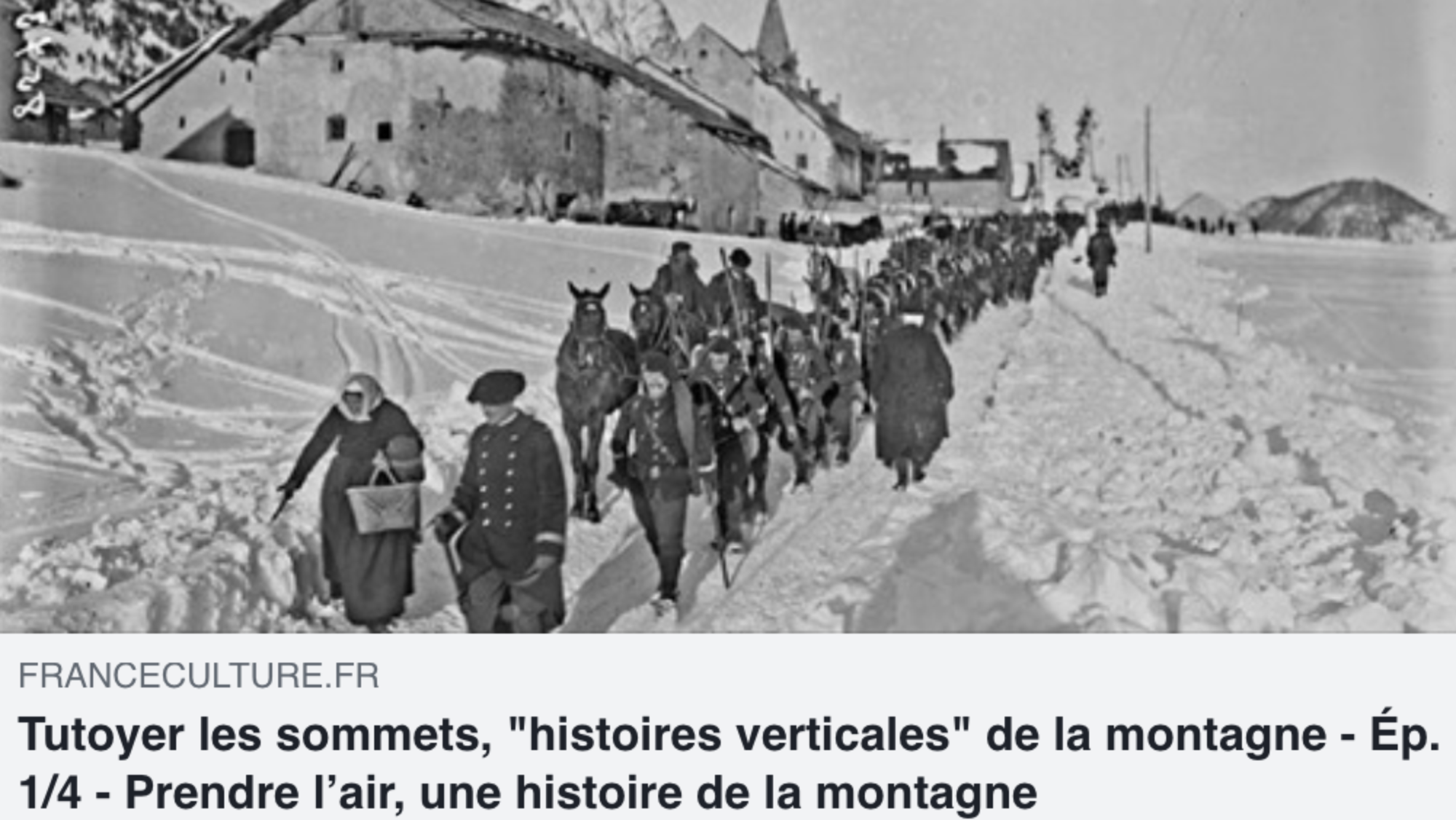Science and society
The Marchalp project interviewed by France Culture

Stéphane Gal, lecturer in modern history at Grenoble Alpes University and author of Histoires verticales. Les usages politiques et culturels de la montagne, XIVe-XVIIIe siècle, was a guest on the France Culture program Le Cours de l’histoire on February 15. Interviewed by Xavier Mauduit, he talks about the Marchalp project, which he coordinated as part of Labex ITTEM.
Insurmountable mountains? Not really. ” It’s never really been an insurmountable barrier,” explains Stéphane Gal, referring to the many people who travelled to high altitudes thousands of years before Christ. A case in point is the mummy of Ötzi, found at an altitude of 3200 metres in the Italian Alps, just a stone’s throw from the Austrian border.
Although the ascent of Mont Aiguille in 1492 by Captain Antoine de Ville symbolically marked the birth of mountaineering, for Charles VIII it was a milestone on the road to Italy and the capture of Naples. Beyond the conquest of the peaks, the Renaissance paved the way for the first major mountain infrastructures. Political power sought to increase its hold on these territories, previously considered inaccessible. They drew borders, built roads, bridges and fortifications, and mapped the mountains. It also aimed to extend its power. Following in the footsteps of Charles VIII’s Italian Wars, François1er crossed the Varce and Larche passes in armor in the summer of 1515, as a prelude to the Battle of Marignan.
This historical episode was the starting point for the Marche armée dans les Alpes project, coordinated by Stéphane Gal. ” You’re in charge of the Marchalp project, ” asks Xavier Mauduit, following the showing of an extract from the documentary Les Chevaliers dans la montagne, produced by the Megapix’Ailes agency and co-produced by Labex ITTEM.
To listen to the full program, visit the France Culture website.
Stéphane Gal also coordinated the book Montagne et liminalité, les manifestations de l’entre-deux XVIe-XXIe siècles in the Montagnes et Innovations collection (PUG/UGA).
